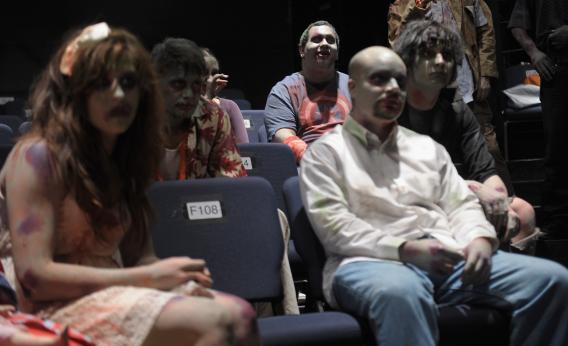Zynga, the “social gaming” company behind such Facebook hits as FarmVille, Mafia Wars, and Words With Friends, has seen better days. The San Francisco-based startup, whose fast rise led to an IPO in December, lowered its revenue estimates on Thursday for the second time in the past three months, Reuters reports. It seems Facebook users are fleeing its older hits, like FarmVille and CityVille, and not paying for its new efforts, like, um, “FarmVille 2,” “ChefVille,” and “The Ville.”
Not surprisingly, investors are abandoning the company in droves. From an IPO price of $10, its shares hit a peak of almost $16 in March. As of Friday afternoon, investors were handing them out to homeless people on street corners instead of dimes. Just kidding—they were trading at $2.48.
What happened? Well, for one thing, the company’s roster of titles reminds me of an episode of the old TV series “Weird Science” in which the characters form a band, stumble on a hit single called “She’s Mean,” and then follow it up with rehashes like “She’s Angry,” “She’s Nasty,” and “She’s a More Or Less Unpleasant Person To Be Around.” Novelty hits, it turns out, aren’t something you can just churn out on command.
In an attempt to address this, Zynga in March bought OMGPOP, the New York-based studio behind the hit game “Draw Something,” for some $200 million. And, of course, it turned out that OMGPOP couldn’t recapture the magic either. CNET reports that Zynga has already written off $85-$90 million of OMGPop’s original value. To put that in perspective, TheNextWeb notes that Zynga’s OMGPOP loss pencils out to nearly $500,000 a day.
Copying other company’s games (allegedly) doesn’t seem to be working out so well either. Zynga is fending off a patent lawsuit from Electronic Arts over “The Ville,” which EA claims borrows too liberally from its own title, “The Sims Social.” (Zynga has countersued.)
What does all of this mean for the future of online gaming? It would be wrong to say that companies can’t make any money developing silly Facebook games: Zynga is still projected to bring in more than $1 billion in total revenue this year. And Zynga isn’t necessarily doomed as a company: As the market for paid Facebook games stagnates, the company has been working hard to establish itself in the still-growing field of smartphone and tablet games. (The mobile ad market, of course, has problems of its own.)
But its stunning fall from grace does make it clear that building a social gaming empire isn’t as easy as investors must have assumed when they valued the company at $7 billion less than a year ago. In retrospect, games like FarmVille and Mafia Wars were, essentially, fads. They were fun, they were new, they went viral, and now people are moving on. And the investors who pumped the company full of money are now cursing themselves for putting down millions on our era’s equivalent of the Pet Rock.
